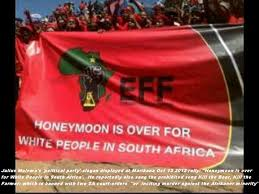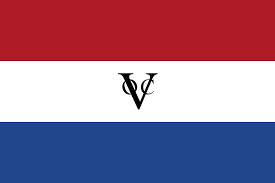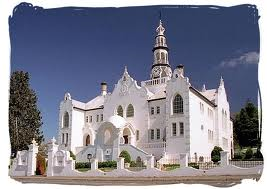”Johannesburg – A man was arrested on Sunday for the killing of an 86-year-old man in Moletsane, Soweto, Gauteng police said.
The 55-year-old was arrested around 11:00 after community members alerted police to his whereabouts, Warrant Officer Kay Makhubela said.
The older man was stabbed to death on Saturday night around 20:00.
The motive was still unclear.
The suspect would appear in the Protea Magistrate’s Court on Monday on a murder charge.
He was one of 179 people who were arrested in Soweto over the weekend for various crimes including rape, driving under the influence of alcohol, possession of dagga, dealing in drugs and the running of unlicensed liquor outlets.”
Commentary
This text shows the wave of violence and crime that affects the South African society. Here we see a clear case of crime among, almost exclusively Black people. South Africa after Apartheid has being always a country ruled by crime. These crimes that we see in Soweto have several different reasons. One is the overpopulation. We clearly see that Soweto has too much population, more than 1.200.000 people and that is too many people for a limited and small amount of recourses, water, food, and in an area that is suited for a much smaller population, just 200.03 square kilometers. These overpopulation of Soweto has is rots traced back to Apartheid when many blacks congregate in that area without any control. But the truth is that even after Apartheid the population continued to increase immense getting from 858.644 habitants in 2001 for 1.271.628 which is an increase of 48.1%. And the Soweto is not the only large city in the Gauteng region with these conditions because we have also Temblaa, Kathehong, Soanhanguve and Mamelodi all of them very poor and large black cities. Of course these habitants, being them habitants already in 2001, children born in these years or migrates to the city live in a large poverty. That shows the ANC has not any notion of urban planeament. For us is important to being implemented policies to create a better urban planeament because those policies are required to increase the living conditions in those cities because it helps reducing the crime levels.
The use of preservative should also be encouragared because many of those babies are born without any family planning in horrible conditions, conditions that propitiate that they will become criminals in the future. Definitely it is required policies of family planeament to avoid situations in which 5 or more children are born without their parents having any conditions to sustain them. However the ANC politicians don’t care with this because for them as long they are in the government they are fine. And we even think that some far left groups, as the EFF, could want this because they want to create a race war in South Africa and so they want more and more youth blacks in order to kill whites. So it’s also a thing that affects the Boer-Afrikaners because many of those youth and very poor blacks are easily attracted by the ideas of people as Julius Malema because he promise to them wealth and land and they easily begin to think that the whites are the enemy because they are more rich in average than the average black and saw them as the oppressors because of Apartheid.
The fact of this youths grow in an environment dominated by crime influence them being criminals in the future because they education is bad, many of them don’t have a paternal or maternal figure in their lives and others simple follow the deviant behavior of friends or family members.
So we think that it is essential to the authorities to give to the people that live in those cities, better education, better living conditions, a better urban planning to increase the live quality and enhance the environment, lessons about family planning and an effective sentence to the criminals focusing in the sentence but also is rehabilitation.





